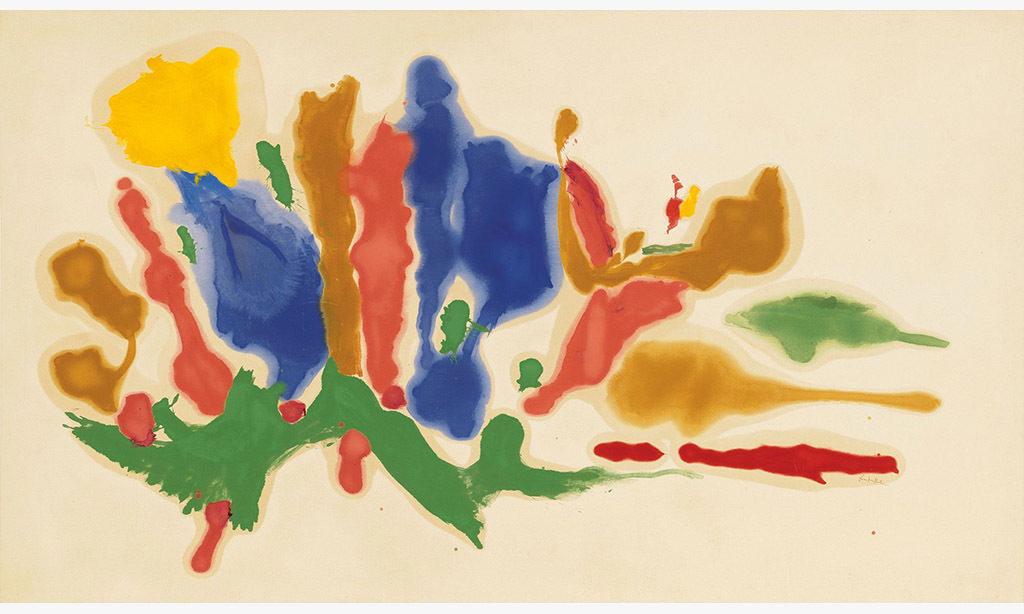MacDowell’s 102-year-old Alexander Studio will become one of the residency’s most energy efficient with a renovation supported by the Helen Frankenthaler Foundation’s grantmaking program for sustainability and energy efficiency initiatives.
While it may resemble a 17th-century chapel, MacDowell’s Alexander Studio is in the midst of a 21st-century technology retrofit.
With the support of a $99,346 implementation grant made through the Frankenthaler Climate Initiative (FCI), a program established by the Helen Frankenthaler Foundation in collaboration with Environment & Culture Partners and RMI, MacDowell is transforming Alexander into one of its most energy-efficient workspaces and moving a big step closer to its goal of carbon neutrality by 2035.
The 102-year-old structure of local granite features a 532-square-foot, double-height studio space lit by tall, north-facing windows – architectural elements that create ideal working conditions for visual artists, who have included Milton Avery, Blanche Dombek, Kay WalkingStick, Lorraine O’Grady, Howardena Pindell, and Erin M. Riley. Alexander is “a magnificent place to work,” remarked artist Bridget Mullen after her spring 2019 residency. “Being in a space that felt like a castle or a church subliminally imbued my work with grand narratives. Looking back at the paintings made in Alexander, I see hands reaching for hands, reminding me in some small way of Michelangelo's fresco ‘The Creation of Adam.’”
Indeed, the sanctuary-like structure was inspired by the Chapel of St. Joseph in Saas-Fee, Switzerland, which Marian and Edward MacDowell visited in the late 19th century with their friends John White Alexander and Elizabeth Alexander. After Mr. Alexander died in 1915, Mrs. Alexander funded the building’s construction in memory of her late husband.
One of MacDowell’s largest studios, Alexander’s optimal design for creativity has also created challenges for both sustainability and maintaining comfortable working conditions for artists. Converted in the 1950s to a year-round workspace with the addition of an oil-burning boiler for heat and hot water, the building has consumed an average of 1,000 gallons of fuel every year, so FCI support will enable MacDowell to make an outsized impact on shrinking its carbon footprint.
The 2024 FCI grant follows the organization’s 2022 funding for MacDowell, which supported the conversion of not only Alexander, but also Cheney and Adams Studios, from fossil fuel-based heating systems to electric heat pumps that draw electricity from MacDowell’s solar arrays. Together, these three new systems prevent the burning of 2,200 gallons of fuel oil per year, on average, and add cooling to the studios – a welcome comfort for artists-in-residence as New Hampshire experiences hotter and hotter summers.
The renovation of Alexander includes the installation of new insulation, a heat recovery ventilation system, and triple-paned windows – a key component of the building’s envelope given that winter temperatures can drop well below zero. MacDowell is keeping the studio’s original French doors, which feature carvings by MacDowell Fellow Morris Hobbs, and the doors will be fused into a single slab and weather stripped. With the space recovered from the removal of the boiler, MacDowell is also expanding the studio’s bathroom, and the project will be finished off with linear LED lighting – color balanced to optimize the creation of art – replacing current fluorescent and incandescent lighting.
Altogether, the new upgrades will reduce both greenhouse gas emissions and operating expenses, leading to an estimated 85% decrease in energy usage and 71% reduction in costs, aligning with the organization’s established values of caring for its land, physical plant, endowment, and community.
Reopened by Medal Day 2025. The Alexander Studio retrofit project commenced in July 2024. MacDowell expects the work to be completed as spring turns to summer in 2025, in time for the annual Medal Day celebration, when the residency opens its grounds and studios to the public.
About the Frankenthaler Climate Initiative: Launched in 2021, FCI is a multiyear Initiative that funds energy efficiency programs and clean energy projects at visual art organizations, including art museums, art schools, non-collecting arts institutions, and nonprofit art events (i.e., biennials). The Helen Frankenthaler Foundation launched and leads FCI in association with RMI, an independent nonprofit that engages businesses, communities, institutions, and entrepreneurs in accelerating the adoption of market-based solutions that cost-effectively create a clean, prosperous, and secure low-carbon future; and Environment & Culture Partners, a nonprofit that creates relationships and leads collaborations that engage the cultural sector in broader climate action.
In addition to MacDowell, 2024 FCI awardees include MoMA PS1, New Museum, Seattle Art Museum, The Kitchen, The Chinati Foundation, Rhode Island School of Design, and the School of the Art Institute of Chicago.


